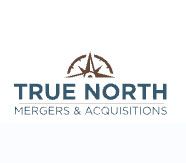The Difference Between a Merger, Acquisition & Takeover

True North Mergers & Acquisitions
September 18, 2024

While mergers, acquisitions, and takeovers are concepts people often use interchangeably, they are actually very different business consolidation strategies. Each represents a unique approach to combining or controlling businesses. And each has unique implications for ownership and management.
Here, we’ll explain the nuances of mergers, acquisitions, and takeovers, exploring how each differs in execution, motivation, and outcomes.
What Is a Merger?
A merger occurs when two companies combine to become a new entity. These transactions are typically friendly because both companies' management teams, boards, and shareholders willingly agree to the merger.
While every deal is unique, most companies merge for:
- Convenience: Two companies that frequently collaborate often merge to streamline their operations and decision-making processes.
- Financial gain: Merging can transform two smaller companies into a larger entity, potentially improving credit ratings or borrowing capacity.
- Necessity: Mergers are often driven by economic conditions and can be an effective survival strategy during an economic downturn.
- Expansion: Mergers can give one company quick entry into new products, services, service areas, and target markets.
What Is an Acquisition?
Acquisitions occur when one company uses cash, stock, or a combination of both to purchase shares and gain control of a target company. While controlled by the other company, the acquired organization often exists as a separate entity. In many cases, the acquired company continues to operate under its own name and organizational structure to preserve brand value and operational efficiency.
Companies typically pursue acquisition for one or more of the following reasons:
- Expansion: Acquisitions allow companies to accelerate growth by expanding into new markets and reaching new customer bases.
- Diversification: By acquiring companies with different products or services (think Amazon acquiring Whole Foods), they broaden their offerings by diversifying their investment portfolios. This reduces risk while broadening earning potential.
- Talent acquisition: Sometimes called “acqui-hiring,” this strategy allows the buyer to instantly acquire a workforce (and broader skill set) they previously lacked.
- Stay competitive: Acquisitions eliminate competitors, allowing the buying company to gain a competitive edge.
What Is a Takeover?
Takeovers typically occur when a larger company purchases a smaller entity—often against the wishes of the target company. While similar to acquisitions, takeovers are generally more contentious.
In some cases, the acquiring company may make an offer to shareholders without gaining the target company’s approval. In others, the acquiring company may buy shares directly from shareholders at a premium or even attempt to replace the target company’s board of directors.
These tactics create a highly pressurized environment with strict deadlines. And if the deal goes public, it can potentially damage the reputations of both companies.
Despite these challenges, acquiring companies still pursue takeovers to eliminate competition, diversify their product or service offerings, and enter new markets.
We Ensure You Exit, Merge, or Acquire With Confidence
Are you looking for a partner to help you make a successful exit or strategic acquisition? True North Mergers and Acquisitions can help. Take the first step towards achieving your goals by connecting with our Managing Director of Project Delivery, Erica Gilson, or Lead Managing Director, Michael Hubsmith, to learn more.
Subscribe to our Newsletter
Sign up for the latest industry insights from True North Mergers & Acquisitions.




